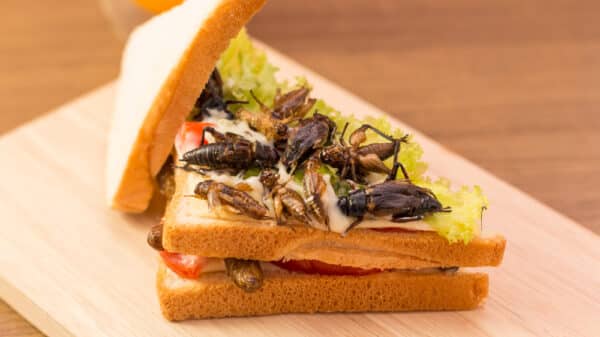If you enjoy eggs, it’s essential to take note of a potential health risk that has emerged recently. The Centers for Disease Control and Prevention (CDC) and the U.S. Department of Agriculture (USDA) have identified a multistate outbreak of Salmonella linked to egg consumption. As of June 5, there have been reports of 79 infections across seven states, highlighting the urgent need for awareness and preventative measures to keep yourself safe.
Given the current situation, it’s alarming that the August Egg Company from Hilmar, California, has recalled a staggering 1.7 million dozen eggs—primarily brown cage-free and certified organic eggs. The FDA has designated these eggs as having a heightened risk of Salmonella contamination. If you regularly buy eggs, check your refrigerator. It’s vital to stay informed about food recalls to protect your health and that of your loved ones.
Understanding Salmonella Symptoms
Many of us might not immediately associate Salmonella with serious health risks, but it can lead to severe infections, particularly in vulnerable groups such as young children, the elderly, and individuals with weakened immune systems. Healthy individuals may experience a range of unpleasant symptoms when infected with Salmonella. These can include fever, nausea, vomiting, and abdominal pain, and in some cases, diarrhea that may be bloody. It’s not just a stomach ache; it can feel like you’ve been hit by a freight train.
Recognizing the Severe Symptoms
In addition to the common symptoms, there are more severe manifestations of Salmonella infection that you need to be aware of. While many people recover without extensive treatment, severe cases can lead to serious complications, particularly for those with existing health issues. Symptoms such as prolonged fever, intense abdominal cramping, and dehydration should never be brushed aside. They are indicators that you may need immediate medical attention.
Protecting Yourself
So how can you safeguard yourself against this looming threat? First and foremost, check if the eggs you have on hand are part of the recall. Look for any product codes or use-by dates that might offer clues. When shopping for eggs, always ensure they come from reputable brands that prioritize food safety.
Additionally, practice safe cooking and handling techniques. Always cook eggs thoroughly until both the white and yolk are firm. Wash your hands before and after handling eggs, and keep surfaces that come in contact with raw eggs clean.
By staying informed, practicing safe food handling, and knowing what symptoms to watch for, you can significantly reduce your risk of Salmonella infection. Remember, it’s always better to be safe than sorry. Your health is worth the extra few moments of caution.While most individuals only encounter mild symptoms when dealing with Salmonella, there’s a more serious side to this infection that few consider. In rare instances, Salmonella can make its way into the bloodstream, leading to severe complications such as arterial infections, endocarditis, and even arthritis, according to the FDA. These conditions represent a significant health risk, particularly for vulnerable populations, underscoring the importance of food safety and awareness.
If you’ve been grocery shopping recently, you may want to check your fridge. The FDA has issued a recall for a batch of eggs that were sold between February 3, 2025, and May 15, 2025. They came with sell-by dates ranging from March 4, 2025, to June 4, 2025, and could be found in various stores across California and Nevada, including popular retailers like Save Mart, FoodMaxx, and Safeway, among others. It’s essential to stay informed—after all, your health is your wealth.
To help you protect yourself and your loved ones, knowing the specific plant codes and packaging details is crucial. The affected eggs bear a plant code number (P-6562 or CA5330) along with specific Julian Dates between 32 and 126. They were sold in either fiber or plastic cartons, with these codes clearly printed on the cartons. Checking these details can ensure you’re not putting yourself at risk, especially when it comes to a staple as common as eggs.
For many, eggs are a breakfast staple or a versatile ingredient in countless family recipes. When the fridge is stocked with the wrong batch, the consequences can be serious, including not only foodborne illness but also the anxiety that comes from feeling unwell. So next time you’re picking up groceries, take a moment to look closely at what you’re buying. It’s about making choices that keep your health and that of your family in check. After all, we all want to enjoy cooking and sharing meals without worrying about what might be lurking in our food.
By keeping informed, checking codes, and remembering to stay vigilant on food safety, you can contribute to a healthier household and community. It’s a simple but effective way to empower yourself in the kitchen and reduce health risks.Eggs are a staple in many households. Whether you enjoy them scrambled for breakfast, boiled as a snack, or whipped into your favorite baking recipes, they provide a convenient source of protein and versatility in the kitchen. However, lately, the egg market has been experiencing some turbulence, and it’s essential to stay informed about what’s happening.
You might have noticed that fresh brown eggs, such as those from brands like Clover Organic or Raley’s, are not as easily accessible as they once were. This shortage isn’t just an inconvenience; it can significantly impact meal planning and budgeting for families. As of late, stores have reported dwindling supplies of not just large brown eggs from popular brands like First Street and Marketside, but also medium and organic options, leaving shoppers wondering how to pivot their plans.
The August Egg Company recently had to make some tough decisions regarding their product line. Due to ongoing supply chain issues, they are currently not selling fresh shell eggs. According to a statement from the company, they’ve been redirecting their eggs to an egg-breaking facility for over a month now. This facility pasteurizes the eggs, effectively making them safe for consumption while preventing any potential foodborne illnesses. While this may sound reassuring, it also indicates an adjustment that many consumers didn’t see coming.
As we navigate these changes together, it’s crucial to explore our options. While some brands may currently be limited, look out for alternatives in your local grocery store or farmers’ market. Consider reaching out to local farms, many of which are committed to supplying fresh, cage-free options. Sometimes, an egg quest can lead you to discover a neighborhood gem that prioritizes quality and freshness.
In this challenging time, it’s all about flexibility. Perhaps you can experiment with different egg varieties or try new recipes that incorporate other protein sources. If you’re finding it tough to scrape up a dozen eggs, consider optimizing your current recipes for ingredient swaps. Whether it’s a hearty breakfast burrito or a comforting frittata, there’s always room for creativity in the kitchen.
Remember, you’re not alone in this. Many fellow shoppers are facing similar challenges, but by sharing tips and staying connected, we can navigate these turbulent times together. Don’t hesitate to chat with your neighbors or join community forums online to share ideas and find the best deals available. Together, we can keep eggcellent meals on our tables despite the supply hiccups.
Image Source: Unsplash































